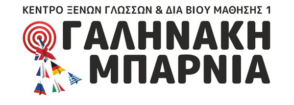
RUSSIAN
In our time, the impression that tends to become a myth prevails, that Russian is one of the most difficult European languages. Is that how things are?
Let's try to look at the issue, explaining some key elements that will hopefully help dispel this trivial stereotype.
The Russian language belongs to the Indo-European language family and specifically to its East Slavic branch along with Ukrainian and Belarusian. The Indo-European family includes most of the languages spoken in Europe, including Greek. It has many similarities with our language, especially in the structure of grammar and syntax, something that facilitates Greek students.
Given the development of Greek-Russian relations in recent years in the fields of tourism, trade, energy, real estate and agriculture, knowledge of the Russian language gives you a great competitive advantage and opens the door to many opportunities.
Russian is spoken by 260,000,000 people in 7 countries of the former Soviet Union and is the main language of communication for 34% of Europeans (Western, Central & Eastern).
The levels of Russian Language knowledge are as follows:
- Α1 - Rudimentary knowledge
- A2 - Basic knowledge
- B2 - Fair knowledge
- B2 - Good knowledge
- Γ1 - Very good knowledge
- Γ2 - Proficient knowledge
Students who will attend at least one level of Russian language learning are given the opportunity to take exams at the corresponding level of language proficiency in the following examination institutions in Greece:
Examination Centers
| Exams | ΑΣΕΠ Ανώτατο Συμβούλιο Επιλογής Προσωπικού |
ALTE Κοινό Ευρωπαϊκό Πλαίσιο Αναφοράς για τις Γλώσσες |
Russia Admission to Russian Universities |
|---|---|---|---|
| Εξετάσεις του Πούσκιν (Ινστιτούτο του Πούσκιν) |
Yes |
- |
- |
| Center for Russian Studies and Culture MIR | - |
Yes |
Yes |
Regular Russian Language exams of Pushkin Institute and MIR center for all levels, are conducted twice per year:
- In the winter, on November and December
- In the summer, on May and June


